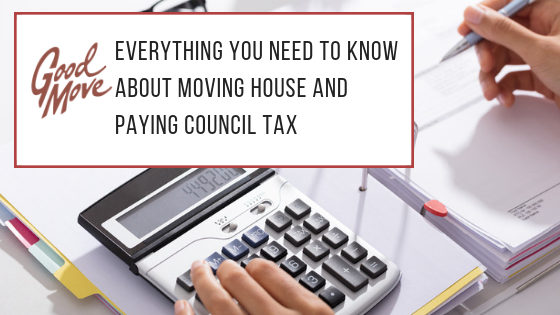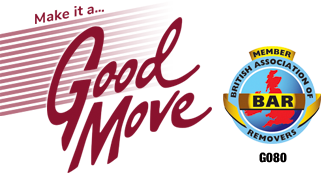
Everything You Need To Know About Moving House And Paying Council Tax
Moving house is an admin heavy experience.
You’ll have plenty of planning to do and lots of people/organisations you need to inform that you are moving.
One of which is your local authority who you pay council tax to.
This is important because you don’t want to end up with two bills or paying more tax than you need to.
Looking for a simple, safe, secure way to pay your #Colchester Council Tax? Easy. Switch to Direct Debit, #switchDD https://t.co/bnfjxqv0A7 pic.twitter.com/1bQEVCTSDw
— Colchester Borough Council (@yourcolchester) January 28, 2019
That’s why we’ve put together this article on everything you need to know about moving house and paying council tax.
Informing your local council in advance could not only save you money but will ensure you are well placed to access local services in your area straight away.
Table of Contents
What Is Council Tax?
Council tax is a tax on residential properties that the council uses to pay for local services, such as :
- Schools
- rubbish collection
- road maintenance
- street lighting, and
- local emergency services
Most people living in Britain over the age of 18 have to pay it.
Although there are certain exemptions and reductions which we will discuss further below.
How Is Council Tax Calculated?
 Council Tax is calculated based on the value of your home. There are 8 valuation bands in England and Scotland, ranging from from A (the highest) to H and 9 in Wales, ranging from A to I.
Council Tax is calculated based on the value of your home. There are 8 valuation bands in England and Scotland, ranging from from A (the highest) to H and 9 in Wales, ranging from A to I.
In England and Scotland the valuations are based on the price the property would have sold for on 1 April 1992, and for Wales 1 April 2003. Not that in Scotland the bands value also differ slightly.
Use this handy tool to calculate the value of your home and find out how much council tax you will be liable to pay based on the valuation bands.
What Happens When You Move House?
Once you move house (but preferably before you actually do) you must tell the local council.
They will calculate and send you a final bill which will be taken as a monthly payment.
You will then receive an annual bill at your new address.
If you are moving to a new area, Ie a location with a different local council then you will have to set up a new direct debit arrangement.
Otherwise you can continue to use the same arrangement, provided the amount of tax you pay hasn’t changed.
If you currently rent you don’t need to pay any more council tax on the property once you vacate it.
Beware Of The Overlap When Moving House And Paying Council Tax
When you move from one local authority area to another make sure you let both know, otherwise you could end up with two bills.
If you do end up with two bills write to them both and explain the situation, stating which property you are no longer living in.
Note however that if you own the home you are moving out of and leave it empty you are still liable to pay council tax on it.
Check who your local authority is here.
How To Cancel Your Council Tax
 Whether you are renting the property you are in and moving into your own home or simply moving to a new area you need to let your council know.
Whether you are renting the property you are in and moving into your own home or simply moving to a new area you need to let your council know.
There are various admin problems that can occur if you don’t do this or fail to do so in proper time.
To avoid any difficulties you should:
- contact your existing local authority several weeks in advance to ensure your application is processed on time
- report from where and when you are relocating to
- if you are moving to a new local authority area, contact them also and have a new council tax account created for you
- pay the last bill on your old home and cancel direct debits you no longer require
Information You Need To Provide
 When moving house and paying council tax you will need to provide the following information:
When moving house and paying council tax you will need to provide the following information:
- your name and telephone number
- the address you are moving to/from and the date.
- The date of moving furniture in or out if different from the above.
- details of your exiting council tax account
- if you are a tenant, the end date of your tenancy and the name and address of your landlord/agent
- whether the property is unfurnished or furnished
- names and address of any solicitors acting on your behalf
How And When to Change Your Council Tax Assessment
If you are moving back into a property you have made changes to, or carried out renovation works on might need to contact your local authority.
You will need to specify if you will be making any changes to your old property (if it’s owned by you) or your new property.
The assessment of your property is based on:
- location
- character
- any change in use
- layout
- size
Changes of property you need to inform the authorities about:
- merging flats into one bigger property
- expanding the size of the current property through an extension or another storey
- converting the house into one of multiple occupation (HMO)
Am I Exempt Or Eligible For Any Reductions?
Council tax is based not only on the type of property you live in but your personal living situation.
You might be eligible to a reduction if:
- you are a single occupant (25% discount)
- you are the only adult in the property (25% discount)
- you are disabled (means-tested)
- the property is empty (up to 50%)
- the property is a second or holiday home (up to 50%)
Some people and homes are exempt from paying council tax altogether. Those in full-time education or who are part of an approved apprentice scheme pay no council tax.
If the property is derelict or in a state of disrepair you may also be exempt from paying council tax.
For all of the above you will need to check what the rules and requirements are in your local authority area.
FAQ Section On Moving House And Paying Council Tax
Q: How much notice do I need to give to my existing council?
A: Give the local council a months’ notice to ensure they can arrange for your late payment to be organised.
Q: When should I inform my new local council?
A: As soon as possible. Local councils will have to process your change of address and calculate your new council tax band so the more notice you give them the less delay and capacity for admin error.
Q: How much council tax do I pay once I leave the property?
A: You should only pay tax for the months you have lived in the property up until your last month. However, if you don’t let the council know you could end up with bills for months you have not been there.
Q; When will I start paying council tax for my new property?
A: You will start paying council tax from the date you move into the property. The council will calculate a payment date in accordance with your payment method.
Who Else Do I Need To Inform?

In addition to council tax you will also need to contact your council to register to vote again and find out how bins and recycling is collected.
You’ve probably got a list as long as your arm but there are various other people and organisations you need to inform.
These include:
- Your service providers such as TV, broadband, phone and any subscription based services like milk, magazines, etc.
- Royal Mail – to redirect your post otherwise you might not even get the bills you are liable to pay!
- Home utilities – water, gas, electric all need to be switched over.
- Your bank – so that they can process your change of address and change your address on their system.
For further guidance on who you need to inform when Moving House see our Blog Post: Moving House Checklist: Who You Need To Tell Before You Move.
Are You Ready To Move House?
Have you recently bought a new home or are planning to relocate to a new area?
If you’ve begun the process of letting everyone know you are moving – from the local council to your bank and mortgage provider – you’ll certainly have enough on your plate.
Let GoodMove help take some of the stress out of moving home.
GoodMove has over 34 years’ experience in the removals industry serving local people and businesses.
Operating out of our site near Colchester, we help families move home throughout the UK, from Colchester to Scotland.
Our service isn’t restricted to your moving date and we can advise you on all aspects of your move, from packing and providing any packing supplies you need, to exploring temporary or long-term storage options.
A full solution will be tailored to your time and budget and our experienced packers can be responsible for preparing and packing as many or as few of your possessions as you wish.
What are you waiting for? To find out how GoodMove can make your next house move a stress-free one don’t hesitate to contact us via the quick quote form, or the number listed above.
Get a Quote
Recent Posts
- Moving to France from the UK in 2026 06th Feb 2026
- Cheap Removals – 7 Ways to Reduce Moving Costs in 2026 29th Jan 2026
- Moving House Council Tax: The Ultimate Guide 22th Jan 2026
- How To Get An Accurate Removals Quote 15th Jan 2026
- Office Removals in Essex: A 5-Step Planning Checklist 08th Jan 2026
- Happy New Year 2026 from GoodMove 01th Jan 2026
- Season’s Greetings: Merry Christmas and Happy Holidays from GoodMove 25th Dec 2025
- 14 Best Kent Villages to Live in 2026: The Ultimate Guide 18th Dec 2025
- Clear the Clutter After Christmas: How GoodMove Helps You Store Belongings Safely in Winter 11th Dec 2025
- Why You Should Start Planning Your New Year Move Now 05th Dec 2025
- Moving House in Winter: 9 Expert Tips to Winter-Proof Your Move (2025 Guide) 04th Dec 2025
- 10 Best Norfolk Seaside Towns to Live or Visit 28th Nov 2025
- 9 Best Kent Commuter Towns for 2025 21th Nov 2025
- Best Places to Retire in Essex and Suffolk 14th Nov 2025
- Living in Chatham – The Ultimate Moving Guide 06th Nov 2025
- Living in Ipswich – 27 Reasons to Move to Suffolk 30th Oct 2025
- Understanding Your Removals Quote: What’s Included and What’s Not? 23th Oct 2025
- Commuting from Essex to London: The Ultimate 2025 Guide 16th Oct 2025
- How to Move Large or Awkward Furniture (And When to Call the Pros) 09th Oct 2025
- How To Move House in Just Two Months – 2025 Guide 03th Oct 2025

